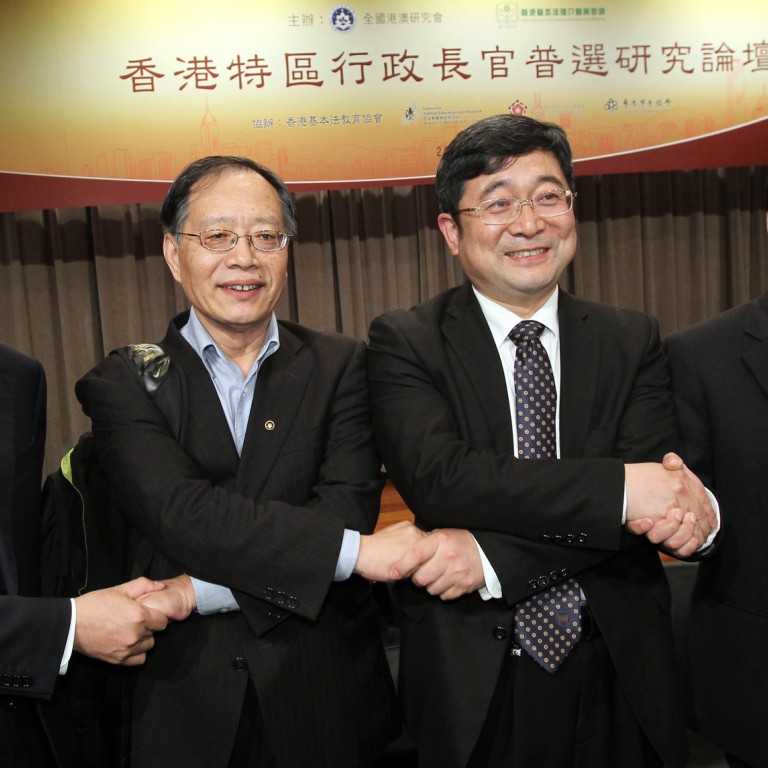
Not recommended - scholar writes off compromise plan
Beijing law expert rejects proposal for public to suggest rather than nominate 2017 candidates
Allowing the public to recommend potential chief executive candidates would dilute the power of the nominating committee, a Beijing legal scholar says.
Wang Zhenmin was responding yesterday to the compromise suggestion put forward by 18 liberal-minded academics that "public recommendation" could provide an alternative to the pan-democrats' call for "public nomination", where all voters would be able to actually nominate candidates.
Wang said both proposals would water down the powers of the committee that is tasked under the Basic Law with putting forward the candidates for the 2017 chief executive election. He added that they would also be a waste of resources.
Under the public recommendation model, a candidate who received signatures of support from 2 per cent of registered voters - approximately 70,000 people - would see their name put to the 1,200-strong committee as a possible candidate. The eventual winner of the city's top job is to be chosen by universal suffrage from a shortlist drawn up by the nominating committee.
Wang, dean of law at Beijing's Tsinghua University and a former Basic Law Committee member, said: "Public recommendation [and] public nomination would dilute the constitutional function of the nominating committee." He was speaking at the first electoral reform forum organised in Hong Kong by the Chinese Association of Hong Kong and Macau Studies.
Wang also challenged the "so-called international standard" against which democrats want to measure reform proposals.
"Which international standard do we want to adhere to? Is it the British standard? Or the American standard?" Wang asked. "My view is we have to create a Hong Kong-loving standard for the city … a model which can solve Hong Kong's problems."
Speaking at the forum, University of Hong Kong law professor Benny Tai Yiu-ting, one of the organisers of the Occupy Central pro-democracy movement, responded: "If an individual is screened out because of his political view… this [system] is not universal and fair. It is not in line with the international standard."
Eric Cheung Tat-ming, one of the 18 scholars who put forward the moderate reform plan, said the idea of public recommendation was definitely in line with the legal framework.
The principal law lecturer at the University of Hong Kong added that no one should suggest the proposal violated the Basic Law just because of their own political considerations. "This would severely twist the spirit of the law," he said.


